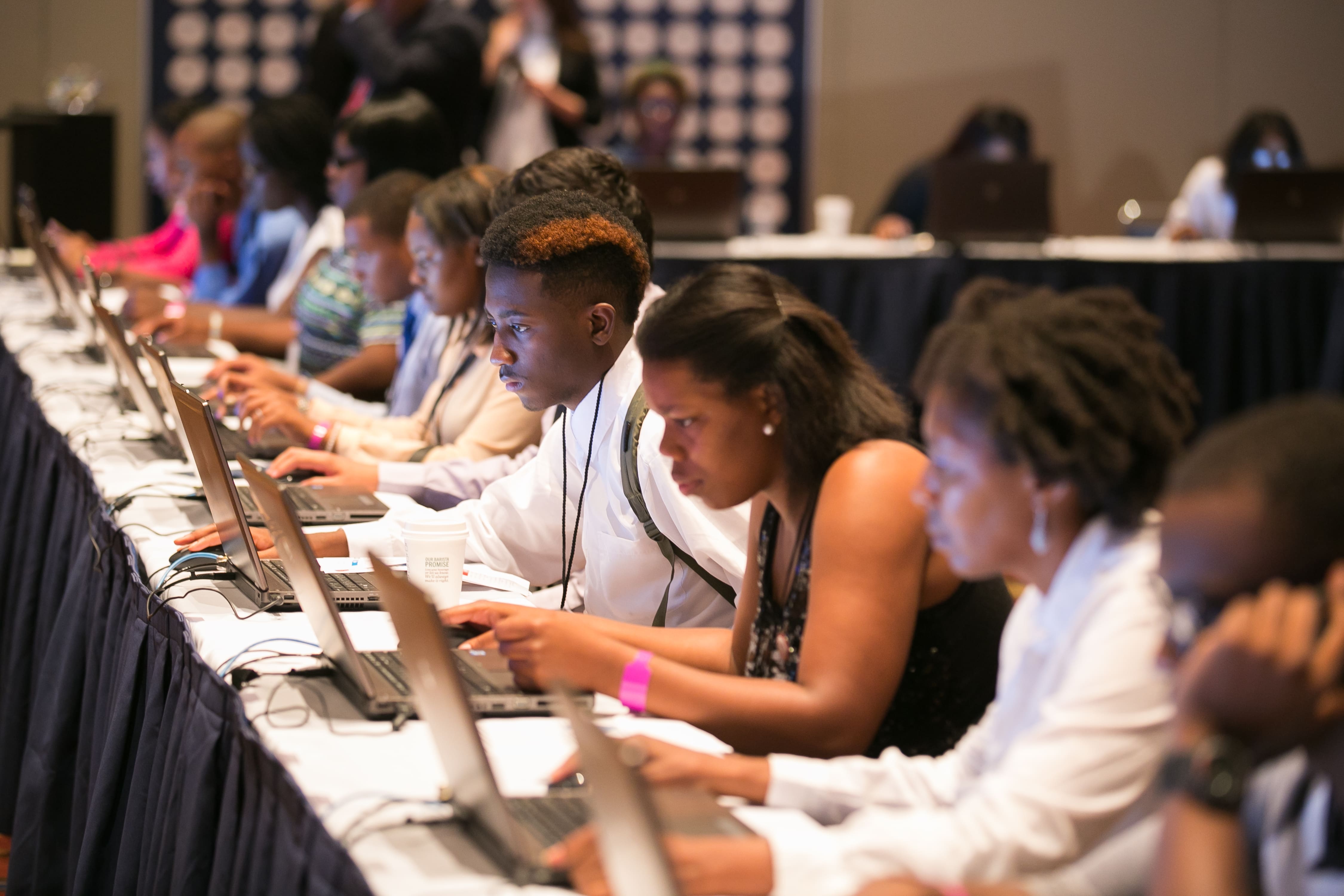
KEY TAKEAWAYS
| SHARE THIS | Today, there are nearly 6 million youth struggling to connect to the labor market. |
| SHARE THIS | “Impact hiring” draws on innovations in technology, data, and people analytics to help companies more successfully recruit and hire disadvantaged youth. |
| SHARE THIS | A coalition of 29 corporate employers has committed to provide jobs, internships, and training to 100,000 young people through the 100,000 Opportunities Initiative. |
Industry leaders in the United States are taking action against the youth unemployment challenge. Today, a growing coalition of 29 corporate employers, including Starbucks, Walmart, and JPMorgan Chase will gather in Chicago for the official launch of the 100,000 Opportunities Initiative. Over the next three years, this coalition of employers has committed to provide jobs, internships, apprenticeships, and training to 100,000 young people between the ages of 16 and 24 who are currently out of work and out of school—our nation’s opportunity youth.
Youth unemployment is a longstanding challenge in this country. Today, there are nearly six million opportunity youth who are struggling to connect to the labor market. This has profound consequences on their ability to participate in our economy and threatens the social and economic future of an entire generation of Americans. Past efforts to address this issue have been led largely by actors in the public and philanthropic communities, with a heavy focus on education and skill development. But these actors alone cannot solve this problem. While education and training are important, there exists a need for new and complementary strategies that focus on employers and unlocking demand for young workers.
“There are nearly six million opportunity youth struggling to connect to the labor market. This has profound consequences on their ability to participate in our economy and threatens the social and economic future of an entire generation of Americans.”
The 100,000 Opportunities Initiative is a landmark step in engaging corporate employers to claim a role in and responsibility for addressing the youth employment challenge. The Rockefeller Foundation is proud to support this work and stands ready to help coalition members turn their commitments into action. We believe that one of the best ways to do this is through “impact hiring”—a novel approach designed to expand employment opportunities for disadvantaged youth and generate business value for companies by creating better, more successful matches for entry-level positions. It draws on innovations in technology, data, and people analytics to help companies recruit from more diverse talent pools, assess young workers’ performance potential more accurately, and offer tailored supports to opportunity youth who are poised to succeed in open entry-level positions.
As a funder of the 100,000 Opportunities Initiative, we at The Rockefeller Foundation see this investment as the beginning of a long-term change toward creating sustainable employment opportunities for youth by utilizing demand-driven solutions. These solutions are attainable, and though we must collectively keep our commitment to open more job opportunities for our youth, we must also give them the tools they need to build successful careers. By expanding access to labor market opportunities for opportunity youth and helping companies derive value from hiring from more diverse pools of youth talent, we see the potential to not only address youth unemployment at scale—but to build a more inclusive economy.



Leave a comment